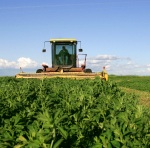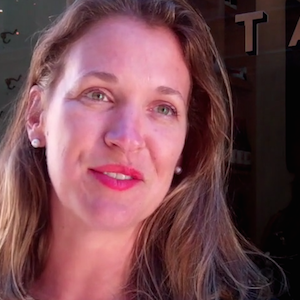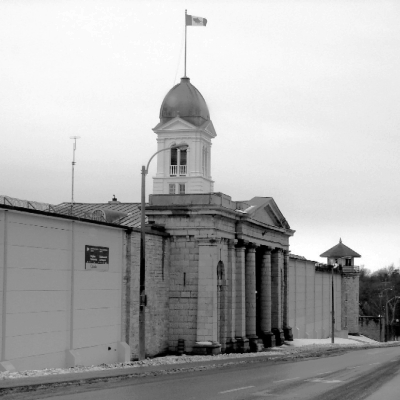by Hannah Renglich
Slowly but surely, the Canadian government is beginning to talk about genetic engineering. Although the House of Commons is divided predictably along party lines when it comes to their stance on genetically modified organisms, it is significant that they are debating and discussing genetic engineering at all.
February 9th, 2011 marked the first parliamentary vote and national discussion on genetic engineering, as Bill C-474 was defeated. Privately tabled by NDP Agriculture critic Alex Atamanenko, if passed, the bill would have required that an analysis of potential harm to export markets be conducted before the sale of any new genetically engineered seed is permitted. In the optimistic words of Lucy Sharratt, Coordinator of the Canadian Biotechnology Action Network (CBAN), “the bill itself was lost, but Members of Parliament are now recognizing that GE can cause a problem to farmers.” The overturning of the bill by 176 to 97 means that the status quo continues, with the strong voice of the biotechnology lobby reflected in the House, and farmers left to fend for themselves.
“It’s crazy that the economic risks to farmers are not considered before GE crops are put on the market,” said Genevieve Grossenbacher, a young Quebecoise farmer speaking for the Canadian Organic Growers. “It’s farmers who pay the costs of GE contamination, not the biotech companies.” Agriculture Minister Gerry Ritz, who opposed Bill C-474 and refused to take a telephone interview with GFR, interprets the situation differently, writing, “Our Government understands that in order to be competitive, our farmers deserve timely access to cutting edge technology.” Yet, as MP Atamanenko commented, “the fallacy is that we’re told GE crops increase yield and in fact they don’t.”
Genetic engineering poses tremendous potential harm for the economy, the environment, and human and animal health. Both Atamanenko and Sharratt agree that up to 80% of international customers would stop buying wheat from Canada based on the fear of contamination, while genetically engineered alfalfa will not be accepted at all. When contamination occurs, no one compensates the farmers. In 2009, Canada’s flax exports to Europe were quarantined due to unexpected contamination, which led to significant economic hardship for Canadian producers. The Flax Council of Canada insisted that this was “a regulatory issue, not a safety issue.” Yet, many critics doubt the safety of genetic engineering, with several animal studies from the American Academy of Environmental Medicine showing that there are serious health risks associated with genetically modified food consumption including infertility, immune dysregulation, accelerated aging, dysregulation of genes associated with cholesterol synthesis, insulin regulation, cell signalling, and protein formation, and changes in the liver, kidney, spleen and gastrointestinal system.
On January 27th, the US Department of Agriculture approved the plantings of genetically engineered alfalfa, in the face of widespread opposition from farmers and consumers. The inevitable contamination of genetically engineered alfalfa, which is perennial and bee-pollinated, threatens the organic industry in the US, and subsequently in Canada, where alfalfa is used as a cover crop as well as for pasture and animal feed. Once released, Monsanto’s genetically modified Roundup Ready Alfalfa will be impossible to contain or remove from the environment. Following the defeat of Bill C-474 and mounting public pressure, on March 2nd, Liberal members of the House of Commons tabled a motion for a moratorium on the approval of genetically modified alfalfa in Canada.
“At this point in our short history with genetic engineering,” says Lucy Sharratt, “we need to find a way so that farmers don’t have to mobilize and protest, which is what farmers had to do to stop GE wheat [in 2004]. That’s just unsustainable.” Vice President of the National Farmers Union, Colleen Ross, believes that “Our democracy has to work for farmers and consumers and not just for multinational biotech corporations.” Issues surrounding genetic engineering demand the active involvement of concerned citizens to prevent the biotechnology industry from guiding the government’s decisions, which will, “protect genetically engineered food even if Canadian consumers don’t want to eat it,” says Sharratt. “It’s our government’s responsibility to protect farmers.”
On March 10, the Agricultural Committee met with the intention of voting on the motion for the moratorium of genetically modified alfalfa; however, Conservative Members of Parliament purposefully delayed the vote. First objecting to prioritizing the motion ahead of others, Conservative members entertained a full hour of debate and discussion before the meeting time ran out. A press release from CBAN states that with the presence of supportive Liberal, NDP, and Bloc members, the motion would have been approved to move to the House of Commons had the Conservatives not delayed their comments. “It makes no sense that Conservatives delayed a decision when we have consensus in the farming community that GM alfalfa needs to be stopped,” said Ann Slater of the Ecological Farmers of Ontario, “Its urgent that our politicians do something real to protect us from the huge threat of GM alfalfa. I hope Members of Parliament understand how urgently we need this moratorium.” The next Agricultural Committee meeting at which the moratorium would be discussed could be as early as March 22nd.
Readers interested in the GE debate can make their voices heard by contacting their Member of Parliament or visit the Canadian Biotechnology Action Network website for breaking news and resources on genetic engineering in the country.
Is Your Member of Parliament a Good Food Fighter?
Bill C-474 VOTE RESULTS:
YEAS
Allen (Welland)
André
Angus
Ashton
Asselin
Atamanenko
Bachand
Bagnell
Beaudin
Bevington
Bigras
Blais
Bonsant
Bouchard
Bourgeois
Brunelle
Cardin
Carrier
Charlton
Chow
Christopherson
Comartin
Crowder
Cullen
D’Amours
Davies (Vancouver Kingsway)
Davies (Vancouver East)
DeBellefeuille
Demers
Deschamps
Desnoyers
Dewar
Dhalla
Donnelly
Dorion
Dosanjh
Duceppe
Dufour
Duncan (Edmonton—Strathcona)
Faille
Folco
Freeman
Fry
Gagnon
Gaudet
Gravelle
Guimond (Rimouski-Neigette—Témiscouata—Les Basques)
Guimond (Montmorency—Charlevoix—Haute-Côte-Nord)
Harris (St. John’s East)
Hughes
Hyer
Julian
Kennedy
Laforest
Laframboise
Lavallée
Layton
LeBlanc
Leslie
Lessard
Lévesque
Malo
Maloway
Marston
Martin (Winnipeg Centre)
Martin (Sault Ste. Marie)
Masse
Mathyssen
McTeague
Ménard
Mendes
Minna
Mourani
Mulcair
Murray
Nadeau
Oliphant
Ouellet
Paillé (Hochelaga)
Paillé (Louis-Hébert)
Paquette
Plamondon
Pomerleau
Rafferty
Regan
Rota
Savoie
Siksay
Silva
Simson
St-Cyr
Stoffer
Szabo
Thi Lac
Thibeault
Vincent
Wilfert
Total: — 97
NAYS
Abbott
Ablonczy
Aglukkaq
Albrecht
Allen (Tobique—Mactaquac)
Allison
Ambrose
Anders
Anderson
Andrews
Armstrong
Arthur
Ashfield
Bains
Baird
Benoit
Bernier
Bezan
Blackburn
Block
Boughen
Braid
Breitkreuz
Brown (Leeds—Grenville)
Brown (Newmarket—Aurora)
Brown (Barrie)
Bruinooge
Byrne
Cadman
Calandra
Calkins
Cannan (Kelowna—Lake Country)
Cannis
Cannon (Pontiac)
Carrie
Casson
Chong
Clarke
Clement
Coady
Coderre
Crombie
Cummins
Cuzner
Davidson
Day
Dechert
Del Mastro
Devolin
Dion
Dreeshen
Dryden
Duncan (Vancouver Island North)
Duncan (Etobicoke North)
Dykstra
Eyking
Fantino
Fast
Finley
Flaherty
Fletcher
Foote
Gallant
Garneau
Glover
Goldring
Goodale
Goodyear
Gourde
Grewal
Guergis
Hall Findlay
Harper
Harris (Cariboo—Prince George)
Hawn
Hiebert
Hoback
Hoeppner
Holder
Holland
Jean
Kamp (Pitt Meadows—Maple Ridge—Mission)
Kania
Karygiannis
Keddy (South Shore—St. Margaret’s)
Kenney (Calgary Southeast)
Kent
Kerr
Komarnicki
Kramp (Prince Edward—Hastings)
Lake
Lamoureux
Lebel
Lee
Lemieux
Lobb
Lukiwski
Lunn
MacAulay
MacKay (Central Nova)
MacKenzie
Malhi
Mayes
McCallum
McColeman
McGuinty
McKay (Scarborough—Guildwood)
McLeod
Menzies
Merrifield
Moore (Port Moody—Westwood—Port Coquitlam)
Moore (Fundy Royal)
Murphy (Charlottetown)
Neville
Nicholson
Norlock
O’Connor
O’Neill-Gordon
Obhrai
Pacetti
Paradis
Patry
Payne
Pearson
Petit
Poilievre
Preston
Proulx
Rae
Raitt
Rajotte
Ratansi
Rathgeber
Reid
Richards
Richardson
Rickford
Ritz
Rodriguez
Russell
Saxton
Scarpaleggia
Schellenberger
Sgro
Shea
Shory
Simms
Sopuck
Sorenson
Stanton
Storseth
Strahl
Sweet
Thompson
Tilson
Toews
Tonks
Trost
Tweed
Uppal
Valeriote
Van Kesteren
Van Loan
Vellacott
Verner
Volpe
Wallace
Warawa
Warkentin
Watson
Weston (West Vancouver—Sunshine Coast—Sea to Sky Country)
Weston (Saint John)
Wong
Woodworth
Yelich
Young
Total: — 176
 Hannah Renglich recently completed her master’s degree in natural resources and peace with a focus on food sovereignty at the U.N.-mandated University for Peace. When not engaged in community food projects and sustainable agriculture, she makes music, drinks tea, and knits curiosities. Hannah is delighted to be covering food politics and food activism for Good Food Revolution.
Hannah Renglich recently completed her master’s degree in natural resources and peace with a focus on food sovereignty at the U.N.-mandated University for Peace. When not engaged in community food projects and sustainable agriculture, she makes music, drinks tea, and knits curiosities. Hannah is delighted to be covering food politics and food activism for Good Food Revolution.









Some further discussion on this topic….
According to one MP this particular vote on a moratorium of GMO alfalfa was before the Standing Committee on Agriculture and Agri-Food, not before the House of Commons.
Some of the MP’s listed here were not even on the committee and did not have a vote on this committee. Can someone check the stats on this page and make sure the information is correct.
Just Visiting,
You are right: the vote on GMO alfalfa was before the Standing Committee, and not the House of Commons. The article’s reference to a House of Commons vote as well as the listing of MPs refers to Bill C-474, which was about requiring examination of potential harm to export markets before the permission of sale of any new genetically engineered seed.
I hope this clarifies things,
Hannah